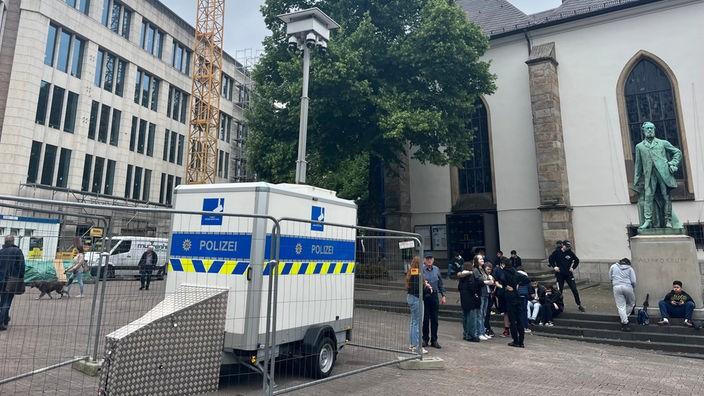When you talk to people these days, you often hear that we are living in a kind of "dystopia". That's not wrong if you look at what imperialism is trying to do in its decline to keep itself alive for a few more years. And often enough, we have already become accustomed to many forms of oppression. For example, we write relatively often about the surveillance of the German state and how it is constantly expanding it. But how often do we notice this surveillance in everyday life?
In Essen, for some time now, there has been 360-degree surveillance with high-resolution, stationary cameras at Rheinischer Platz at the end of the city center. These cameras send their images 24 hours a day, seven days a week to the control center of the police headquarters in Essen, where they are received and evaluated in real time. This surveillance is now being extended a few meters further to the square next to the Rathausgalerie. With a "mobile" video system including an alarm system and tree fences, another part of Essen's city center is now also being transmitted live to the police headquarters. In addition, according to Essen's police chief Stüve, more police patrols will be allowed to patrol the area and carry out more checks on people without concrete suspicion. This is made possible by a new paragraph in the police law with the dashing name "strategic investigation". However, the only strategic aspect of the whole thing is not to combat anti-popular crime, but to monitor public spaces and the population more and more closely. The dealers and other scoundrels who serve as justification for this surveillance will move a few meters away, just as they have done in the past. What remains is all-round surveillance for the people.
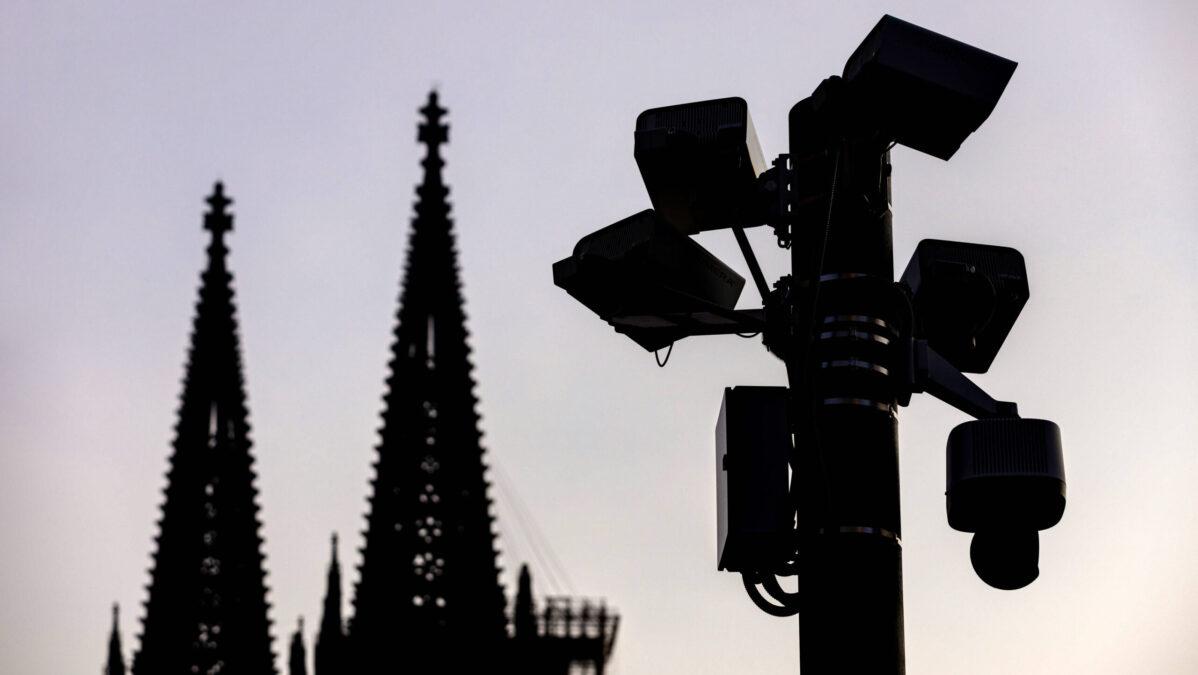
This does not change the fact that, according to the Essen police chief, the system will initially only be in use for four weeks for data protection reasons. In the very next sentence he comes back to the fact that after four weeks the images will be analyzed and it will be seen how to proceed. What will probably happen is that it will be announced that the lumpen have been avoiding the square since the surveillance and that this shows the success of the measure, which should now be applied much more frequently. Or that the problem with the lumpen has turned out to be bigger than expected and therefore the surveillance should be applied much more frequently to counteract this. What remains is all-round surveillance for the people.
And so the surveillance of public spaces is being expanded city by city. In Duisburg, two mobile all-round surveillance systems are now also being placed on the Hamborner Market. And in Cologne alone, there are more than seven areas with comprehensive camera surveillance. If you walk around Ebertplatz or Kalk, for example, you already have the feeling of living in a kind of open-air Big Brother. The cameras can even film into your own living room.
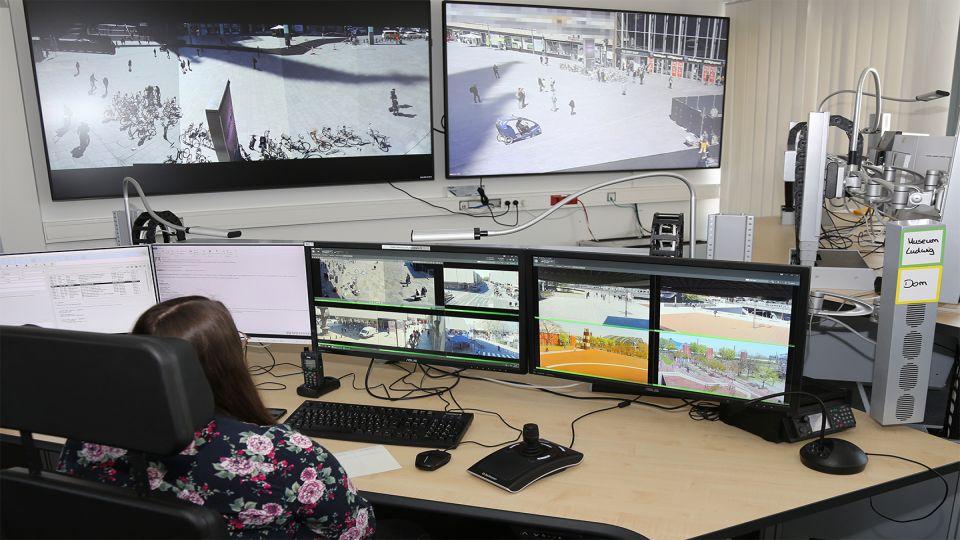 |
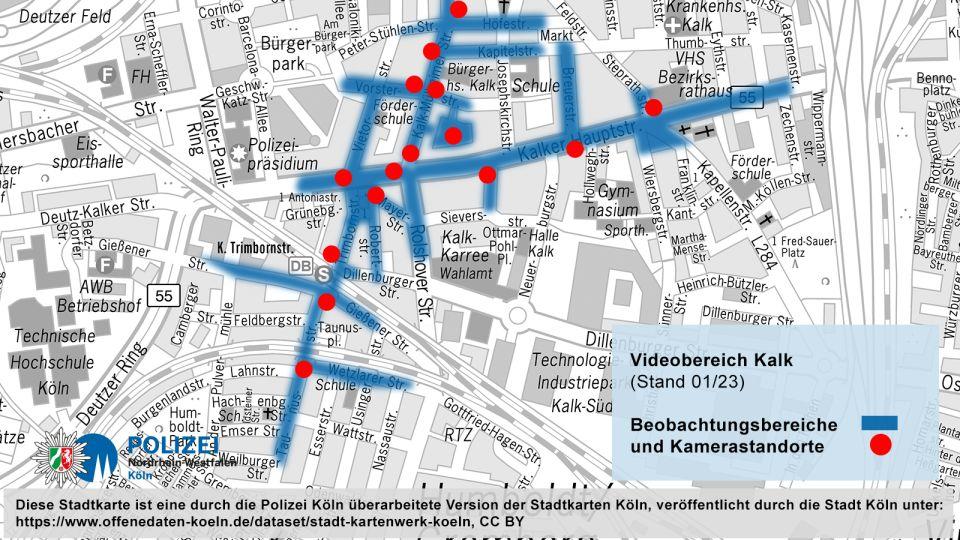 |
See entire streets at a click: camera surveillance in Cologne-Kalk.
But despite all the feeling for how "dystopian" these measures by the bourgeois state are. These measures are "dystopian" because imperialism is dying. And that is a reason for great joy and revolutionary optimism. As far as surveillance is concerned, we of course need broad initiatives against it. In Cologne, for example, this is what the "Stop Cameras" initiative is doing, which has launched seven lawsuits by residents since 2018 to end surveillance.
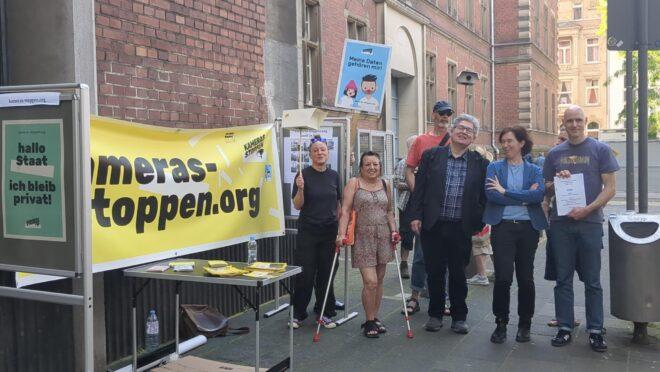
The "Stop Cameras" initiative is working with local residents to fight against total surveillance.
